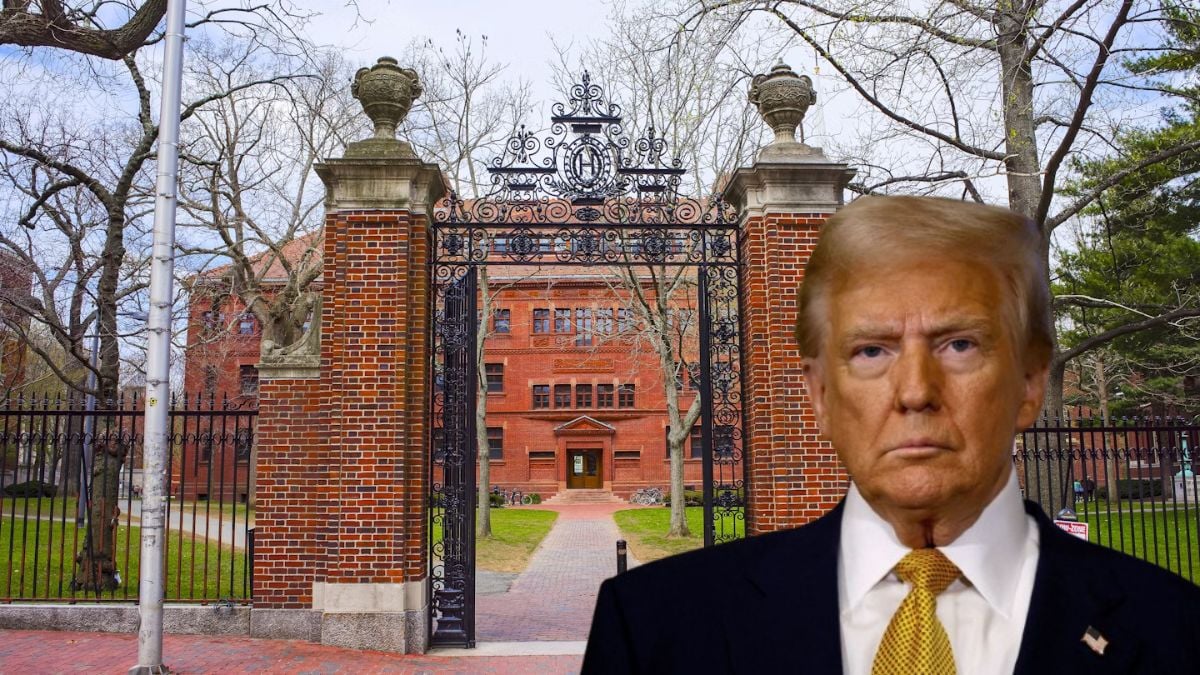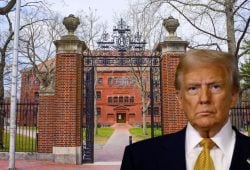
The conflict between the President of the United States and Harvard University continues to escalate, and now the country’s most prestigious higher education institution has filed a lawsuit this Monday against the Trump administration, accusing it of an attack on educational institutions. Here are 5 key facts to help you understand why this conflict arose and what could happen if it continues to escalate.
5 Key Facts to Understand the Conflict Between Trump and Harvard
Harvard’s lawsuit against the Trump administration comes after the U.S. President threatened to cut funding to public universities as part of a plan to “reclaim” elite universities. Here’s a brief timeline of the conflict:
- Donald Trump’s administration launched a campaign against antisemitism, during which it criticized programs and teachings related to gender ideology and racial diversity.
- Trump demanded that universities not only hire external auditors but also share their hiring data with the government, in order to ensure that each academic department includes a diversity of perspectives.
- The Trump administration accused Harvard of allowing antisemitic expressions on its campus and threatened to cut $9 billion in funding if the university failed to meet its demands.
- In response, Harvard President Alan Garber sent a letter to Trump stating that neither Harvard nor any private university can afford to be absorbed by the federal government, and that academic freedom is non-negotiable.
- Harvard filed a lawsuit against the Trump administration in a federal court in Massachusetts, accusing the government of launching a widespread attack against educational institutions.
ALSO READ Confirmed: Vatican reveals Pope Francis’ official cause of death
Who Is Harvard Accusing in Its Lawsuit Against the Trump Administration?
In its lawsuit, Harvard University accuses the Trump administration of attempting to control academic decision-making within the institution. The document names several U.S. officials, including:
- Robert F. Kennedy Jr., Secretary of Health and Human Services
- Linda M. McMahon, Secretary of Education
- Stephen Ehikian, Acting Administrator of the General Services Administration
- Attorney General Pamela J. Bondi
What Is Trump Demanding from Harvard?
The Trump administration has called for sweeping reforms in the management and administration of Harvard University, as well as changes to its admissions policies. The institution has also been asked to conduct an audit of campus perspectives on diversity and to suspend recognition of certain student clubs. Below are the specific demands:
- Governance and Leadership Restructuring: Harvard must restructure its governance to give more power to tenured faculty and senior leaders, thereby limiting the influence of students and adjunct faculty.
- Merit-Based Hiring: The university must implement admission and hiring policies based strictly on merit, eliminating preferences based on race, color, religion, gender, or origin.
- Review of International Admissions: Harvard must reform its process for selecting international students to prevent the admission of individuals deemed hostile to American values.
- Diversity of Perspectives in Admissions and Hiring: The university must commission an external audit involving students, faculty, and staff to ensure diversity of viewpoints.
- Audit of Biased Programs: Harvard will need to audit programs and departments accused of promoting “antisemitic harassment.”
- Elimination of DEI Programs: Harvard must immediately eliminate all programs and policies related to Diversity, Equity, and Inclusion (DEI).
- Reform of Student Discipline and Accountability: Harvard must revise its student discipline policies to ensure the enforcement of existing rules and to prevent disruptions to the educational process. If these policies are ineffective, the university must develop and implement new disciplinary measures.
- Whistleblower Protection and Reporting: Harvard must establish mechanisms that allow students and others to report noncompliance with these reforms to both university leadership and the federal government, while also ensuring full protection against retaliation for whistleblowers.









